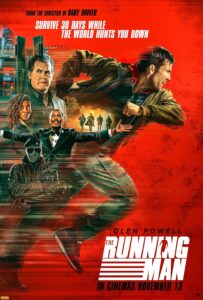 I remember seeing The Running Man when I was a kid, because of course I did. Sci-fi action movies with Schwarzenegger were a no brainer. I remember, years later, reading The Running Man, by Richard Bachman[1], and recognizing enough of the plot elements (and, okay, the title) to know it was where the movie came from. And I remember being astonished by just how much better the book was than the movie.[2] Ironically, I remember almost nothing about the plot of the movie itself; what I’m envisioning is Arnold running around a laser tag arena in a shiny lycra jumpsuit and then eventually beating up Family Feud’s own Richard Dawson, but surely, surely there was more to it than that. Counterpoint, of course, is how readily I gave up on that movie once I read the book.
I remember seeing The Running Man when I was a kid, because of course I did. Sci-fi action movies with Schwarzenegger were a no brainer. I remember, years later, reading The Running Man, by Richard Bachman[1], and recognizing enough of the plot elements (and, okay, the title) to know it was where the movie came from. And I remember being astonished by just how much better the book was than the movie.[2] Ironically, I remember almost nothing about the plot of the movie itself; what I’m envisioning is Arnold running around a laser tag arena in a shiny lycra jumpsuit and then eventually beating up Family Feud’s own Richard Dawson, but surely, surely there was more to it than that. Counterpoint, of course, is how readily I gave up on that movie once I read the book.
Fast forward 30-odd years, and it seems someone who actually liked the book has made a new version of the movie in which things are a little more… serious-minded. The Running Man is the primetime jewel in the Network’s crown of 24×7 reality TV game shows in which downtrodden losers try to earn enough money to escape from the slums, which of course they never will, but in the meantime the Network rakes it in from an enthralled America. (This Bachman guy was prescient, I tell you.)
One such loser, Ben Richards, has been blackballed from pretty much any available job because he keeps trying to help his coworkers instead of letting them fail and die, and there’s no room for woke chumps in the new America. But he has a sick daughter and a wife who’s about one night away from becoming a prostitute to makes ends meet[3], and before you know it he’s signed up for the show. Which is a 30 day game of hide and seek between the Runners and… pretty much everyone else. Anyone who reports a Runner’s location gets a wad of dough, and then the Goons (ie, corporate police) and the Hunters (ie, the recurring characters who America is rooting for, most seasons) swoop down and kill the Runner who got reported.
Hiding from literally everyone, as you may be able to conceive of, is a tricky matter, and doing it for 30 days is nearly impossible, especially under the cameras everywhere panopticon we call modernity. (Plus, you can’t just hide in the deep woods and wait it out, because you have to mail in a 10 minute tape every day or you get disqualified.) Anyway, that’s it. That’s the whole movie. Will he succeed where everyone else has failed?
Okay, that’s not the whole movie. There’s also the thread, woven throughout, in which a mirror is held up to us as an audience and we get to think about just how complicit we may or may not be in the coming dystopia, Tarantino-style.
[1] Or someone else, who can remember
[2] This was in my callow youth when I didn’t know just how readily Hollywood will scrap a book’s plot entirely in favor of their own idea.
[3] As opposed to doing it because it’s her chosen career path, which would be a whole different story.
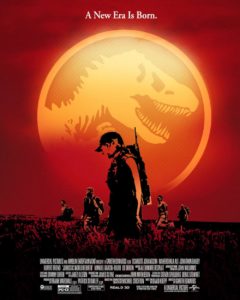
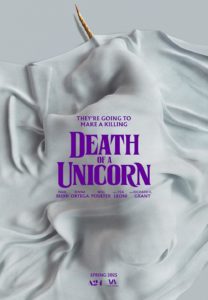
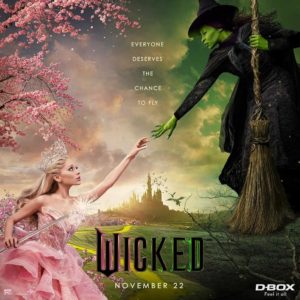

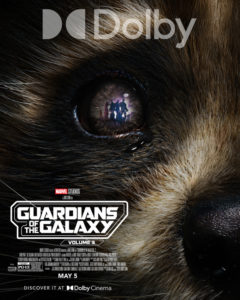
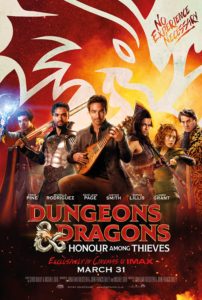
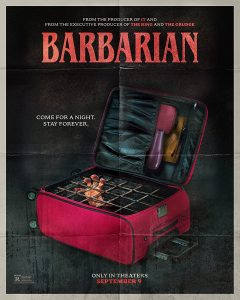
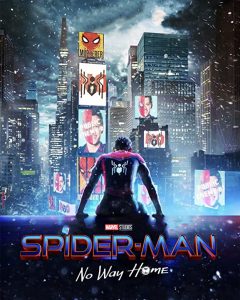 I would be remiss if I did not first point out that in addition to being otherwise fun and sans commercials, the Alamo Drafthouse pre-show is especially useful for movies that require recaps[1], because they can tell you everything you need to know and with mostly a bare minimum of spoilers involved. Although, because reasons, the
I would be remiss if I did not first point out that in addition to being otherwise fun and sans commercials, the Alamo Drafthouse pre-show is especially useful for movies that require recaps[1], because they can tell you everything you need to know and with mostly a bare minimum of spoilers involved. Although, because reasons, the 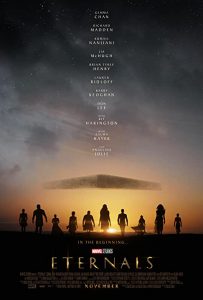 Retroactive continuity is a tool honed to perfection in two art forms[1]: soap operas and superhero comic books. These forms share a lot else in common. They are a) both extremely long-form storytelling where b) the people writing today do not have a plan past the next ten or twelve episodes at the most, c) they both have cliques of characters that mostly hang out together but occasionally cross over with other cliques, and even more rarely all come together for some kind of huge event, and they both d) have dedicated, opinionated fanbases who have stuck around for decades but e) are written so that someone can drop in at practically any moment and be able to catch up.
Retroactive continuity is a tool honed to perfection in two art forms[1]: soap operas and superhero comic books. These forms share a lot else in common. They are a) both extremely long-form storytelling where b) the people writing today do not have a plan past the next ten or twelve episodes at the most, c) they both have cliques of characters that mostly hang out together but occasionally cross over with other cliques, and even more rarely all come together for some kind of huge event, and they both d) have dedicated, opinionated fanbases who have stuck around for decades but e) are written so that someone can drop in at practically any moment and be able to catch up.